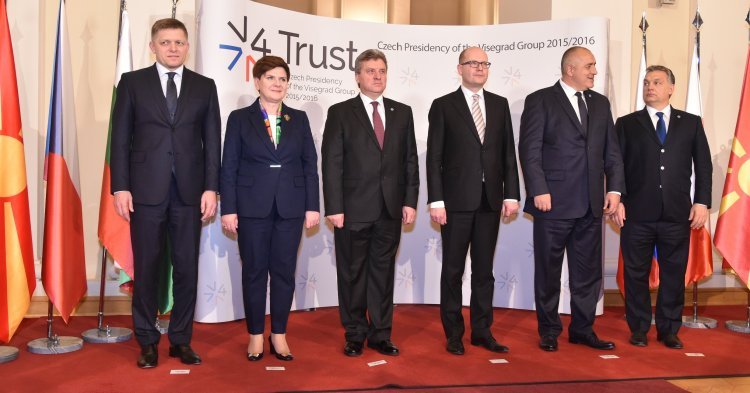The foreign ministers of the EU founding member states (France, Italy, the Netherlands, Belgium, Luxembourg and Germany) came together to assure each other still advocating for a ever deeper union. ’The six countries declare in favour of leaving nothing undone to find a common European solution’, German Foreign Minister Steinmeier explained. If necessary the integration has to be achieved at different pace.
The informal meeting served to give self-reassurance but indicated also as a warning shot to the doubting and hesitant states in Europe. While thousands of people from Syria arrive in Greece everyday more and more states refuse to receive refugees. And Great Britain wants to retreat from EU membership completly. The appeal from Rome is unmistakably clear. Those who do not want to act in concert with the ’Coalition of the Willing’ will be lost. The core Europe will carry on alone.
Central Europe’s influence in Brussels is low
A multi-speed Europe could fasten the integration process of the core Europe and could lead to cooperations on different policy areas. An economic union or a European army wouldn’t stay to be the vivid imaginations of euro optimists.
But it would be difficult to assess the consequences. Europe could fall apart, other members could leave the union, too. Especially in Central Europe - where there is opposition growing against the European refugee policy dictated by German Chancellor Merkel – would undock easily.
In this context the meeting of the Visegrad Group in Prague has to be understood differently than the meetings before. The heads of government of the V4, consisting of Poland, Czech Republic, Slovakia and Hungary, not only celebrated the 25th anniversary of the group but also made clear that they want to take a common power position for the very first time. With their Plan B they wanted to present an alternative for a European refugee policy just some days before the next European Council meeting in Brussels.
Pressure on Brussels exerted by coherence
By their consensus, their political weight and the already created facts by sending border soldiers to the Macedonian border there will be no way of avoiding them in the negotiations. This coherence wasn’t always this clear. After reaching their highest goal 2004 – EU membership – the loose cooperations were maintained moderately. On the back of Germany Poland under the civil-liberal Donald Tusk tried to move up to the first league of member states and Hungary under Viktor Orbán refused to receive the important states Austria and Slovenia in their group.
Now the Visegrad Group is united by a common challenge (the prevention of the European refugee policy) and the establishment of populist governments (especially under the newly elected Polish Prime Minister Beata Szydło, the socialist Head of Government of Slovakia Robert Fico and the nationalist Hungarian Prime Minister Orbán) they can build up enough pressure.
New courage of the Visegrad Group
Not only the language of the Visegrad Group but their political approaches paint a dark picture of the European Union. The present refugee policy is characterized as a ’EU diktat’ (Fico), ’external borders out of control“ (Szydło) and „a threat to freedom’ (Orbán).
Independent of the political effectiveness or the moral responsiblity of the so called Plan B of the Visegrad Group they reached the goal to strengthen the Central Bloc again. After all every eighth European lives in one of these four countries.
All national interests by states off the core Europe from the Baltic Sea to the Mediterranean have to be heard and considered, too, in a solidly Europe. Of course Europe will not accept ’easiest solutions’ (Steinmeier) but a refugee policy can’t be enforced past the majority of the member states. The new courage of the Visegrad Group made that clear.


Follow the comments: |
|
